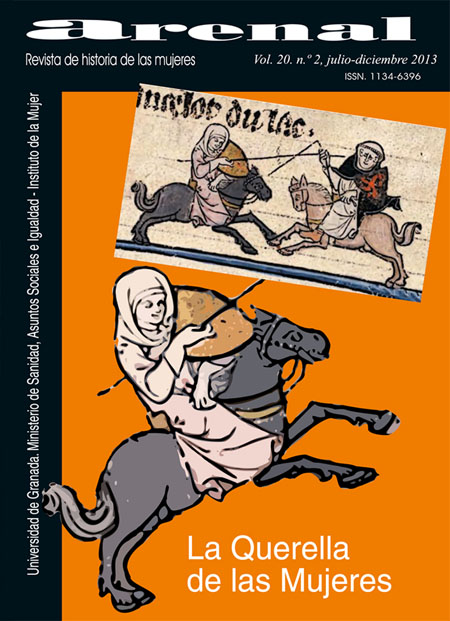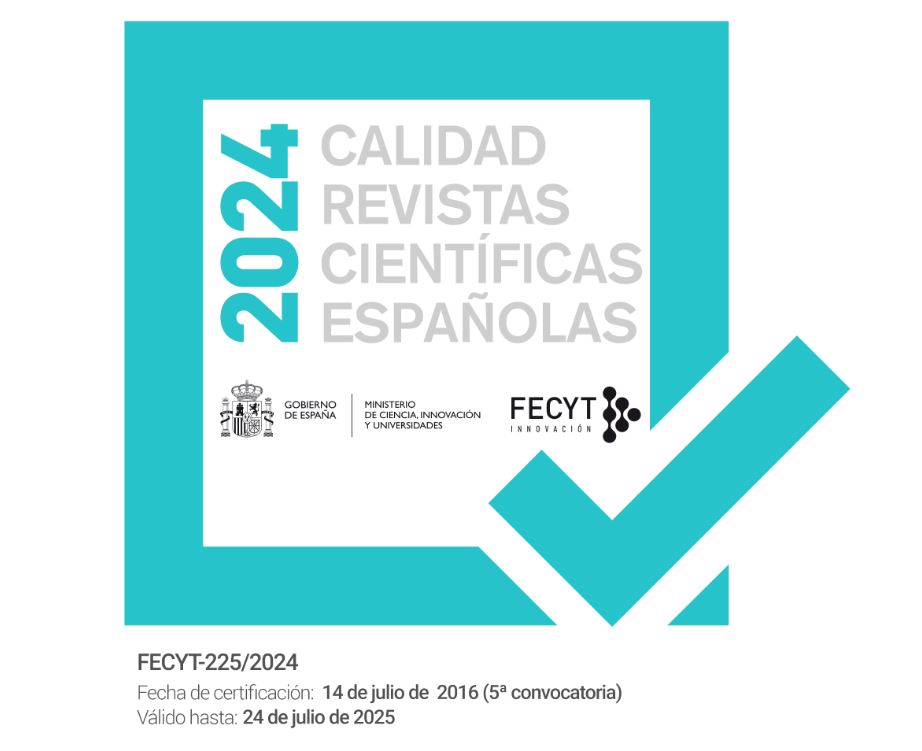¿Hubo una Querella de las Mujeres en la medicina moderna?
DOI:
https://doi.org/10.30827/arenal.v20i2.1569Palabras clave:
Medicina humanista, Querella de las Mujeres, Ginecología moderna, Feminismo modernoResumen
Los historiadores han destacado con frecuencia el papel que desempeñó la argumentación médica en la Querella de las Mujeres, en un sentido antifeminista. En este artículo, sostengo que tal interpretación debería reconsiderarse. Numerosas evidencias sugieren que la medicina desempeñó un papel en el bando favorable a las mujeres en el marco de la Querella, pero hasta ahora esas evidencias tan sólo se han analizado de manera fragmentaria. Cuando se examinan conjuntamente, lo que emerge es una historia bien distinta, en la que los argumentos protofeministas se muestran como un aspecto influyente y perdurable del discurso médico, en relación con importantes tendencias de la medicina moderna. En este artículo, considero en primer lugar la transformación de los roles de género en el humanismo, particularmente en el humanismo médico, tal como indican dos voces femeninas significativas en la Querella, las de Nicole Liébault y Lucrezia Marinella, ambas hijas de médicos. A continuación, examino una de las novedades más llamativas de la medicina moderna, la emergencia de los escritos médicos sobre enfermedades de las mujeres, dirigidos por primera vez, en cierta medida, a un público femenino. Es ante todo en estos textos donde encontramos a médicos que dan voz a argumentos favorables a las mujeres, hasta tal punto de que esas obras deberían considerarse, en mi opinión, como parte integral de la Querella. A partir de esa evidencia, concluyo que existió una Querella de las Mujeres en la medicina moderna. Algunos médicos humanistas desafiaron los argumentos más antiguos, de carácter escolástico, sobre las mujeres, y ello tuvo un impacto profundo y perdurable en la cultura médica moderna.
Descargas
Descargas
Publicado
Cómo citar
Número
Sección
Licencia
Los/as autores/as que publican en esta revista están de acuerdo con los siguientes términos:
Los autores/as conservarán sus derechos de autor y garantizarán a la revista el derecho de primera publicación de su obra, el cuál estará simultáneamente sujeto a la Licencia de reconocimiento de Creative Commons 4.0 BY-NC-ND que permite a terceros compartir la obra siempre que se indique su autor y su primera publicación esta revista.
Los autores/as podrán adoptar otros acuerdos de licencia no exclusiva de distribución de la versión de la obra publicada (p. ej.: depositarla en un archivo telemático institucional o publicarla en un volumen monográfico) siempre que se indique la publicación inicial en esta revista.
Se permite y recomienda a los autores/as difundir su obra a través de Internet (p. ej.: en archivos telemáticos institucionales o en su página web) antes y durante el proceso de envío, lo cual puede producir intercambios interesantes y aumentar las citas de la obra publicada. (Véase El efecto del acceso abierto).














